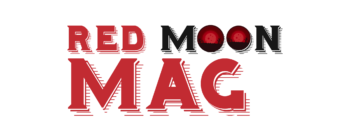The rapid evolution of cell therapy technologies has opened new frontiers in medicine, offering curative potential for diseases that were once untreatable. Yet, alongside this promise lies a maze of scientific, ethical, and regulatory complexities that can challenge even the most well-funded and scientifically advanced companies.
Navigating this landscape without expert support can lead to regulatory missteps, development delays, or even clinical holds. That’s why specialized partners, such as CERES regulatory consulting for cell therapy, play a critical role in helping companies align their science with global compliance standards from discovery to commercialization.
1. Managing Complex Product Classifications
Cell therapies often defy traditional definitions of drugs or biologics. Some are autologous (patient-derived), others are allogeneic (donor-derived), and many are combined with gene-editing components or biomaterial scaffolds.
Each of these product types may:
- Fall under different regulatory pathways (e.g., IND vs. BLA in the U.S., ATMP in the EU)
- Require different types of documentation and preclinical studies
- Be subject to distinct manufacturing and labeling standards
A regulatory expert ensures your product is correctly classified, guiding you to the most efficient and appropriate development path.
2. Ensuring Preclinical Study Relevance and Rigor
Preclinical data forms the backbone of any successful clinical trial application. For cell therapies, that includes evaluating:
- Tumorigenicity and long-term cell persistence
- Biodistribution and off-target effects
- Immunogenicity, especially for allogeneic therapies
- Potency and dose-response relationships
Regulatory consultants help design and review these studies for alignment with FDA, EMA, or PMDA standards—ensuring data are robust, reproducible, and regulatory-grade.
3. Supporting CMC Development and Compliance
The Chemistry, Manufacturing, and Controls (CMC) section is often the most technically demanding part of any submission. For cell therapies, manufacturing involves living materials, which require:
- Tight control of donor screening and cell sourcing
- GMP-compliant expansion, modification, and cryopreservation processes
- Lot-to-lot comparability plans
- Stability data under real-world shipping conditions
Experts help your team establish SOPs, validate processes, and create documentation that regulators trust.
4. Facilitating FDA and Global Agency Interactions
Regulatory consultants help bridge communication between companies and agencies by:
- Preparing for pre-IND, Scientific Advice, or Type B meetings
- Drafting detailed briefing documents
- Framing clear and strategic questions
- Assisting with post-meeting response planning
These engagements are key opportunities to gain feedback, de-risk development, and align expectations before trials begin.
5. Accelerating Time to Clinic and Market
Regulatory missteps are costly. A poorly prepared IND or Clinical Trial Application (CTA) can result in:
- Clinical holds
- Additional nonclinical study requests
- Delays in manufacturing authorization
- Investor setbacks or funding gaps
Experts streamline timelines by building efficient regulatory roadmaps and identifying red flags before submission.
6. Navigating Global Regulatory Landscapes
For companies operating internationally, each market introduces its own challenges:
- The FDA’s evolving frameworks for gene-modified products
- The EMA’s ATMP classification and centralized procedures
- Health Canada’s risk-based approval model
- Japan’s conditional approvals and regenerative medicine acts
A global consultant ensures your product is harmonized across regions—avoiding conflicting feedback or duplicated effort.
Conclusion
Cell therapy is among the most exciting and transformative areas of biotech today—but it is also one of the most highly regulated. From product definition to GMP compliance and global approvals, the road to commercialization is filled with technical hurdles and shifting expectations.

